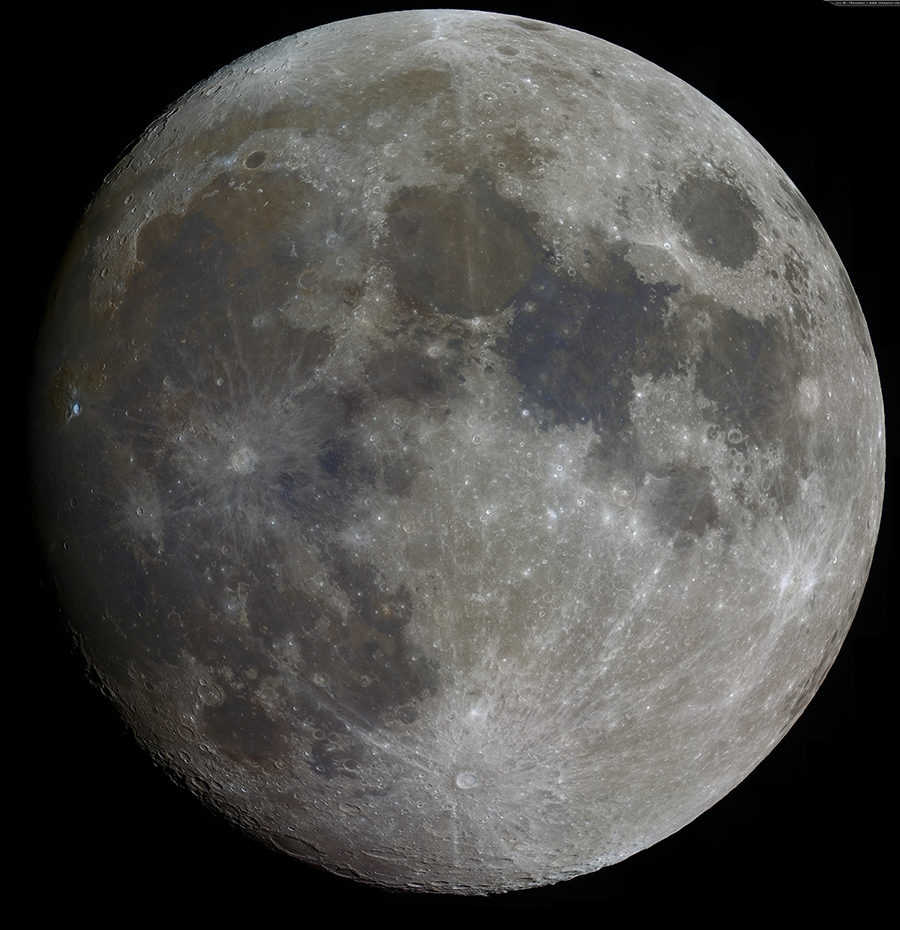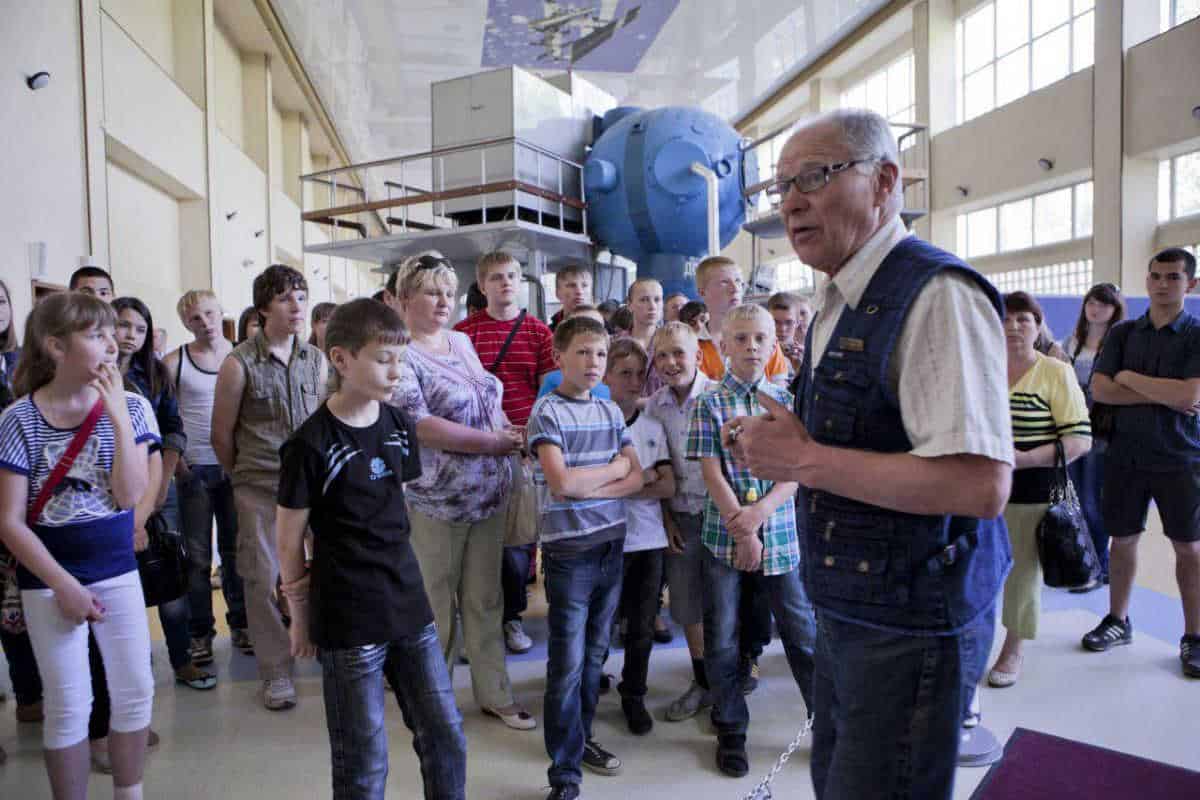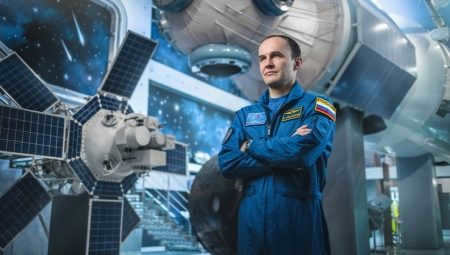
Throughout history, humanity has gazed up at the heavens and yearned to take flight. As civilization advanced, the dream of exploring beyond our planet became a reality. There may not be a plethora of professions associated with space, but those that do exist are crucial and invaluable, enabling us to gain a deeper understanding of our own world and the vast expanse of space.
Who are astronauts?
Astronauts are individuals who have the opportunity to explore the vastness of outer space, a fascinating and challenging endeavor that only a select few can undertake. The role of an astronaut encompasses working on a space station or aboard a spacecraft, both of which require extensive training and expertise. To become an astronaut, one must acquire a wealth of knowledge about celestial bodies, uncovering new insights and validating existing theories. Equally crucial is the preparation for piloting and maneuvering spacecraft, a vital skill for any astronaut.
Astronauts undergo training on simulators that offer various scenarios to prepare them for different situations. This type of training requires patience, perseverance, willpower, and the ability to endure harsh environmental conditions.
Prior to space flights, astronauts undergo rigorous testing to evaluate their physical reactions. Only those who successfully pass all the tests and complete the challenging tasks are selected for space missions.
Upon completion of their training, prospective astronauts are required to undergo examinations, the results of which determine whether they will be admitted to a flight or assigned to work at the command center.
Astronomer Job Description
The role of an astronomer involves studying both stars and planets. Astronomers observe celestial bodies and analyze their characteristics and features. In order to gain a better understanding of space and the processes that occur within it, astronomers study the positions and orbits of stars and planets. While observing cosmic bodies through a telescope is a small part of their work, a significant portion of their time is spent on calculations, data processing, creating maps of the night sky, and working with formulas.
Furthermore, aside from possessing knowledge, a true expert in this domain must also exhibit diligence, attentiveness, and patience; otherwise, the desired outcome will not be achieved.
What are some alternative careers in the field of space exploration?
Given that the exploration of space encompasses a highly intricate and multifaceted realm, individuals from diverse professions can contribute to this pursuit.
- Space biologists. These experts investigate the behavior of living organisms on various planets and explore methods to sustain the well-being of astronauts. They engage in cultivating plants and experimenting with animal breeding on space stations. The unique environment allows for the observation of organism development, growth, and potential mutations.
- Cosmic biologists. These specialists examine the behavior of living organisms on different celestial bodies and investigate strategies for supporting astronaut vitality. Within this field, researchers cultivate plants and experiment with animal reproduction on space stations. The novel habitat provides an opportunity to study the process of organism development, growth, and potential mutations.
- Robotic Engineering Specialist. In the unique conditions of outer space, the presence of automated systems is crucial to support astronauts in their various endeavors. This is especially true in emergency scenarios, where machines provide vital assistance. The continuous development of advanced mechanisms, software, and other cutting-edge designs simplifies the astronaut’s ability to navigate and operate outside the confines of Earth. Moreover, these technological breakthroughs often extend beyond the realm of space exploration and find practical applications in our everyday lives through a wide range of devices and appliances.
- Telecommunications engineer: An essential profession that plays a crucial role in ensuring uninterrupted communication channels for astronauts during their space missions. These engineers work tirelessly to ensure clear and reliable communication at all stages of the mission. Their duties encompass establishing communication links with satellites and troubleshooting any communication issues that may arise during the mission.
- Astronautical engineer. The success of astronautics heavily relies on the presence of engineers on board each crew who consistently work towards ensuring the functionality and proper operation of all equipment. They bear the responsibility for the technical security of the spacecraft, which is crucial for any successful mission.
- Experienced astronaut. This individual holds the role of ship pilot, as they undergo extensive preparation, training, and rigorous testing. Those who overcome all the challenges along the way are rightfully referred to as experienced astronauts. In addition to piloting the spacecraft, their responsibilities include coordinating the crew’s activities and overseeing the functionality of all systems.
Cosmonautics is the scientific field dedicated to studying space and its various aspects. Thanks to space flights and the tireless work of scientists, we have gained a wealth of new and fascinating knowledge, leading to groundbreaking discoveries and insights that were previously unimaginable.
The work carried out by individuals involved in space exploration is of utmost importance and incredibly complex. It is a highly respected and challenging profession that has remained popular and in-demand since its inception.
An astronomer is an individual who specializes in the study of celestial bodies. These experts observe the planets within our solar system, both natural and artificial satellites, as well as stars, uncovering the patterns and phenomena governing their motions and life cycles.
An astronomer is responsible for modeling the processes that are likely to occur in space in the near and long term, as well as evaluating all potential risks. Despite common misconceptions, this expert does not spend all of their time at the telescope. In reality, direct observation only takes up a few hours, while the generation of reports, which involves meticulous calculations using computer programs, can take several months.
Aside from the primary tasks of observation and drawing relevant conclusions, this profession also entails speaking at scientific conferences, giving lectures at specialized educational institutions, maintaining a thematic blog, and more.
This field is well-suited for individuals who possess a solid understanding of the laws of physics, mathematics, and chemistry.
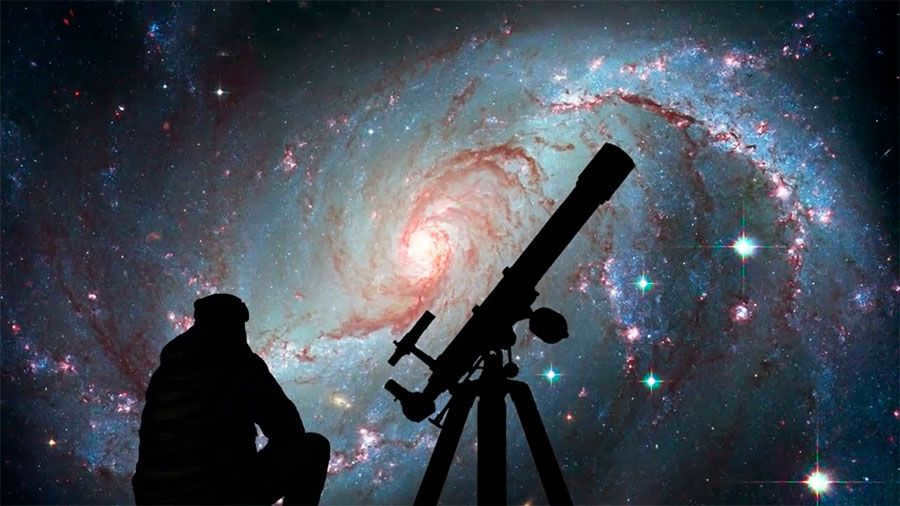
Advantages and Disadvantages of the Career
One of the main benefits of being an astronomer is the opportunity to participate in significant research that contributes to the assessment of the future well-being of humanity. Many people idealize this field, and for good reason. Astronomers are individuals who pay close attention to detail, possess a rich inner world, and understand the value of the objects that surround us in reality.
An undeniable perk of this profession is the favorable working conditions. Modern observatories are equipped with all the necessary resources to ensure comfortable work environments.
There are several advantages to consider:
+ The chance to venture into uncharted territories and become an explorer
+ The opportunity to expand one’s network, including with colleagues from different countries
+ Attractive pay
+ Potential fame through media exposure
+ Endless opportunities for learning and research
Although there are a few disadvantages to this profession:
– Limited job opportunities
– Lengthy and challenging training process
– Mandatory expertise in exact sciences (in addition, continuous professional development and proficiency must be demonstrated throughout one’s career).
Individuals with hearing, visual, or musculoskeletal disabilities are unable to pursue a career in this particular field. Moreover, excelling in this field necessitates an exceptional ability to handle stress.
Essential Qualities for an Astronomer
An astronomer should possess the following qualities:
✎ Goal-oriented.
✎ Patient.
✎ Observant.
✎ Responsible.
✎ Studious.
✎ Attentive.
✎ Careful.
A strong desire to acquire new knowledge is a fundamental prerequisite for the applicant’s character.
An astronomer must possess the ability to accurately analyze data and retain vast amounts of information. Proficiency in computer technology and programming skills would be an added advantage.
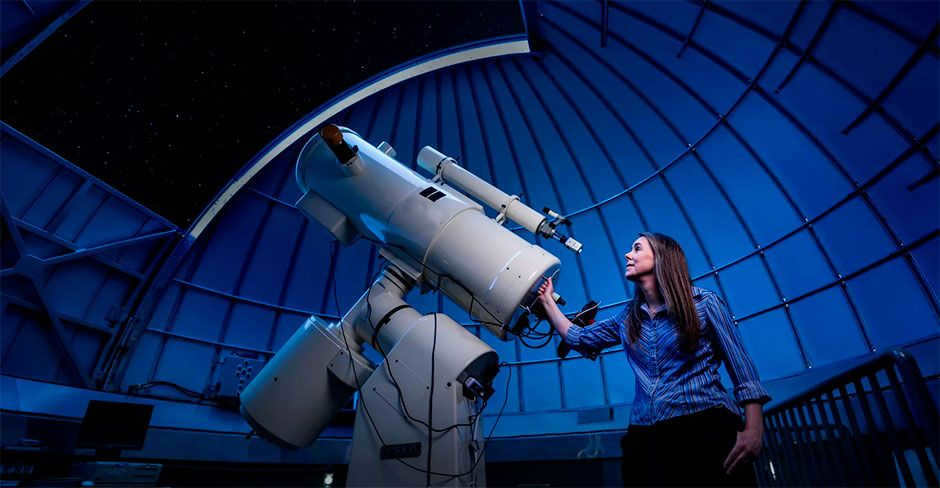
How to pursue a career in astronomy
In order to become an astronomer, one must obtain a higher specialized technical education. There are several departments available for specialization, including:
✔ Astrophysics
✔ Astrobiology
✔ Astrochemistry, and more.
You can pursue your desired education at various institutes. Some examples include:
► MEPHI
► MIPT
► MISIS
► RosNOU
Students in these programs will study subjects such as mechanics, statistics, and higher mathematics.
Where to pursue a career
The path of a career in astronomy is typically not a vertical one, but rather a horizontal journey. This means that progressing in the field is often achieved through expanding one’s breadth of knowledge and experience rather than moving up in a hierarchical structure.
There are various places where an astronomer can work:
✔ Observatories
✔ Space research institutes
✔ Research centers
✔ Planetariums
If you also have a teaching degree, you may have the opportunity to impart your knowledge and passion for astronomy by teaching courses at a university.
How much does an astronomer earn?
The salary of an astronomer is directly influenced by their qualifications, degree, and work experience. The initial salary is relatively low.
► In Russia, salaries range from 11,000 to 35,000 rubles.
► More favorable conditions are available in St. Petersburg and Moscow, where remuneration can reach up to 90,000 rubles.
An astronomer can also be awarded a Nobel Prize for making a significant contribution to the field of science, which is valued at over one million dollars.
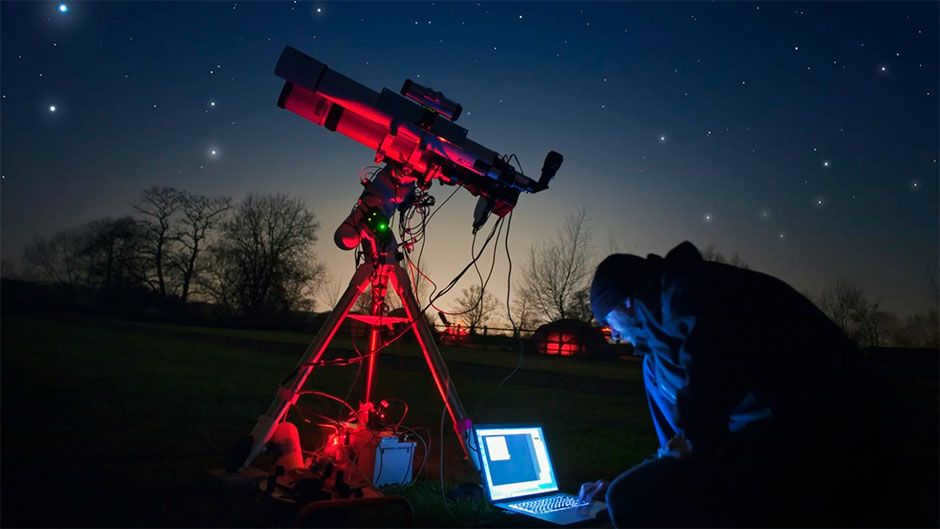
Career Opportunities
There are numerous career opportunities available for astronomers. To work in an observatory or research center, one must complete graduate school and defend a PhD thesis.
Depending on their specialization, astronomers can focus on a specific area, such as:
- Cosmology
- Astrophysics
- Radio astronomy
- Astronomical instrumentation
A unique aspect of this profession is that astronomers can be both theorists and observers. Some professionals develop new instruments to enhance the observation and data processing process, while others create innovative research methods in the field of astronomy.
Prospects for the profession
The profession of an astronomer is gaining popularity in today’s world. With the advancement of modern technologies and the availability of powerful optical devices, astronomers are able to make discoveries more frequently and analyze various celestial objects with greater precision. The more expertise an astronomer possesses, the higher the likelihood of achieving a successful career in this field.
An accomplished astronomer can effortlessly engage in the following activities with remarkable accuracy:
✔ Model the processes occurring in outer space
✔ Formulate equations and perform complex mathematical calculations
✔ Create detailed star maps
✔ Analyze and summarize observational data
✔ Track the movement and changes in the condition of celestial bodies
✔ Independently investigate scientific hypotheses and theories pertaining to astronomy and cosmology.
The field of astronomy is relatively uncommon, yet highly significant for the entire human race. The valuable knowledge regarding celestial bodies, stars, and galaxies is acquired through the diligent efforts of these experts.
Astronomers offer a vivid and, more importantly, dependable portrayal of the universe.
Source: Humanitarian Technologies Center
If you are interested in receiving up-to-date articles about various professions, please subscribe to our newsletter.

Astronomers are scientists who focus on the exploration of celestial bodies, including stars, planets, galaxies, and other entities in the vast expanse of the universe. Their primary objective is to examine and elucidate the physical attributes of these entities, as well as analyze their movement and development. Moreover, astronomers also delve into cosmic phenomena such as black holes, gravitational waves, and cosmic objects that may hold significance for our forthcoming expeditions into outer space.
In Russia, astronomers have a significant impact on scientific research and the advancement of the space industry. They are employed in academic institutions, observatories, and space agencies like Roscosmos. Astronomers analyze astronomical phenomena using telescopes and various instruments, as well as develop and test novel observation techniques and tools for space exploration.
Astronomy holds immense significance in our comprehension of the Universe and humanity’s position within it. Russian astronomers actively participate in worldwide space missions and scientific partnerships, playing a crucial role in expanding our understanding of space and conducting groundbreaking research in this domain.
The Evolution of the Astronomy Profession
The profession of astronomy has a long and fascinating history, spanning thousands of years and making it one of the oldest scientific fields. Russia, in particular, boasts a rich heritage and enduring traditions in the field.
The earliest recorded instances of astronomical observations in Russia can be traced back to the 10th century. During this time, astronomy was closely intertwined with ideas about the cosmos, celestial bodies, and their impact on human life. Grand Prince Vladimir Svyatoslavich invited Greek astronomers to study astronomical phenomena and create calendars based on their findings.
During the 14th and 15th centuries, the Russian Orthodox Church played a significant role in the development of astronomy. Astronomical research was utilized to determine the dates of religious holidays and implement calendar reforms. Observations of the stars and planets became an integral part of monastic and church life.
During the 18th century, the Russian Empire played a crucial role in promoting the advancement of astronomy. The establishment of the first Russian observatory in St. Petersburg by Peter the Great exemplified the empire’s active support. Astronomers dedicated their efforts to creating comprehensive astronomical charts and tables, while also observing the movement of planets within star constellations.
Throughout the 19th century, Russian astronomers achieved remarkable breakthroughs and significantly contributed to the progress of astronomical science. Fyodor Bessell, a prominent Russian astronomer, made numerous discoveries related to double stars, while Julius Schrabb became the first to accurately measure the astronomical absolute parallax of a star.
Throughout the 20th century, Russia maintained its achievements in the field of astronomy. Numerous observatories were established, such as those in the Crimea and the Caucasus. Russian astronomers played an active role in space exploration and made significant investments in the advancement of rocket technology. As a result of these efforts, the Soviet Union successfully launched the Earth’s first man-made satellite in 1957.
Different but related specialties in the field of astronomy
There are various specialties in the field of astronomy that are related and similar, providing diverse opportunities to explore the universe and contribute to the space industry.
- Astrophysics: This scientific field combines the study of astronomy and physics to examine the physical processes connected to celestial objects. Astrophysicists focus on investigating stars, galaxies, and cosmic phenomena like gravitational waves, black holes, and supernova explosions.
- Cosmology: Cosmology involves the examination of the origin, structure, and evolution of the entire universe. Cosmologists dive into topics such as the expansion of the universe, the early stages of its formation, the composition of the universe, and other significant inquiries.
- Astrogeology: This is the scientific field that focuses on the study of planets, their natural satellites, atmospheres, and surfaces. Astrogeologists investigate the physical properties of planets within our solar system as well as those found orbiting other stars, aiming to gain insights into their composition and potential for supporting life.
- Solar physics: Solar physics is the study of the Sun and its interactions with the surrounding space. This field encompasses research on solar activity, such as solar flares and solar wind, as well as the Sun’s impact on Earth and other celestial bodies.
- Space exploration: Space exploration is a multidisciplinary area of study that investigates the space environment and various aspects of space travel. Scientists in this field examine spacecraft, develop new technologies for space exploration, and analyze the effects of the space environment on both life and technology on Earth.
- Radio Astronomy: Radio astronomers utilize radio waves to investigate celestial objects. They analyze radio emissions from galaxies, stars, pulsars, and other entities.
An astronomer’s job prospects
Astronomy jobs in Russia provide exciting and promising opportunities for professional advancement.
Below are a few promising areas of work for an astronomer in Russia:
- Scientific research: Astronomers can participate in scientific research at academic institutes and universities in Russia. They can explore various aspects of the universe, such as stars, galaxies, planets, and other celestial objects, conduct experiments, and develop new theories and models.
- Observatory work: Astronomers have the opportunity to work at various observatories across Russia, such as the Pulkovo Observatory in St. Petersburg and the Gorky Observatory in Nizhny Novgorod, among others. They can utilize telescopes and other instruments to make observations, analyze data, and make groundbreaking discoveries.
- Exploring outer space: Russia has a storied history in space exploration. Astronomers can participate in space missions and expeditions, contribute to international space programs, and play a role in the development and enhancement of spacecraft and instruments.
- Education and teaching: Astronomers can also engage in educational activities by working in universities and schools. They may deliver lectures and seminars on astronomy, collaborate on research projects with students, and contribute to the advancement of astronomy education in Russia.
- Development and engineering: Astronomers have the opportunity to contribute to the development and engineering of spacecraft, as well as optical and radio instruments. They can play a role in designing and creating innovative instruments for astronomical observations, while also being involved in the advancement of space exploration technologies and methodologies.
Astronomer Position Requirements
When pursuing a career as an astronomer in Russia, there are specific qualifications and educational prerequisites.
Outlined below are general requirements that typically apply to individuals seeking the position of astronomer:
- Educational Background: To be considered for the role of astronomer, candidates usually need a university degree in astronomy, astrophysics, physics, mathematics, or a related field. Advanced research positions may necessitate further qualifications such as a Ph.D. in one of these disciplines.
- Proficiency in physics and mathematics: Astronomers must possess a solid understanding of physics and mathematics, as these disciplines serve as the cornerstone for comprehending astronomical phenomena and constructing theoretical frameworks. Familiarity with specific branches of physics, like astrophysics or gravitational physics, can also prove advantageous.
- Expertise in data analysis: Astronomers need to excel in handling data derived from observations and experiments. This entails processing and scrutinizing data, employing statistical techniques and models to extract pertinent information, and conducting research.
- Programming and Computer Skills: In modern astronomy, computational methods and modeling play a crucial role. Therefore, having knowledge of programming and computer skills, including the use of specialized software and programming languages, may be essential.
- Observational and Instrument Skills: Familiarity with astronomical instruments, such as telescopes, detectors, and other equipment, is necessary for astronomers. They should be capable of making observations, recording data, and processing the gathered information.
- Communication Skills: Astronomers frequently publish their research and findings, participate in scientific conferences, and engage with colleagues.
Advantages of being an astronomer
The profession of an astronomer in Russia offers numerous benefits and advantages that appeal to individuals with a passion for studying the cosmos.
Here are some of the key advantages of working as an astronomer in Russia:
- Exploration of the Universe: Astronomers have the unique opportunity to delve into the enigmatic and captivating aspects of the universe. They analyze stars, galaxies, planets, and other celestial entities, expanding our understanding of the origin and development of the cosmos.
- Uncovering new knowledge: Astronomers frequently make groundbreaking and exhilarating discoveries. They may identify previously unknown planets, investigate supernova explosions, reveal gravitational waves, and more. These discoveries have the potential to revolutionize our comprehension of the universe and lead to scientific breakthroughs.
- Participation in international projects: Russian astronomers play an active role in international space projects and missions, collaborating with colleagues from various countries. This allows for the exchange of expertise and knowledge, as well as the opportunity to contribute to significant scientific breakthroughs.
- Technological advancement: Working as an astronomer in Russia contributes to advancements in space research technology. Astronomers are involved in the development and enhancement of spacecraft, telescopes, and instruments, thereby contributing to the growth of the Russian science and technology sector.
- Russia offers excellent educational opportunities in the field of astronomy, thanks to its prestigious universities and research institutes. Aspiring astronomers have the chance to immerse themselves in the academic environment, collaborating with fellow scientists and students to expand their knowledge and foster professional growth.
Disadvantages of being an astronomer
While there are numerous benefits to pursuing a career as an astronomer in Russia, it is important to be aware of the potential drawbacks.
Here are some of the primary negative aspects associated with working in the field of astronomy:
- Competitive atmosphere: Engaging in scientific disciplines, such as astronomy, often entails a significant level of competition. The availability of funding and research positions can be limited, resulting in intense competition among scientists.
- Uncertain funding: The funding for scientific projects in Russia can be unstable and unpredictable. This can impact the availability of resources and research opportunities. Astronomers may face financial constraints, making it challenging to achieve their research and scientific objectives.
- Working at inconvenient hours: The study of celestial objects necessitates observations to be conducted during specific time periods, which often include night hours. As a result, astronomers may be required to work irregular schedules, including night shifts and weekends and holidays.
- Required competencies: Pursuing a career as an astronomer demands a high level of expertise in physics, mathematics, and computer technology. This can pose a challenge for individuals who struggle in these areas.
- Limited availability of observation sites: Russia has a finite number of observatories and observing sites, particularly those with access to modern and advanced telescopes. Consequently, this may restrict opportunities for observation and hinder access to specific research projects.
Despite the potential downsides, being an astronomer can offer a thrilling and stimulating experience for those who have a passion for space exploration and expanding our understanding of the universe.
How much do astronomers earn?
The salary of an astronomer in Russia can vary greatly depending on several factors, including skill level, experience, location, and type of employment. There are several factors that can influence an astronomer’s salary:
Education level and scientific degree, such as a PhD or MD, often have an impact on an astronomer’s salary. Higher qualifications can lead to more opportunities for higher-paying and more prestigious positions.
All in all, working as an astronomer in Russia can offer promising career prospects and a competitive salary, particularly for highly qualified and experienced professionals.
Training Opportunities in Astronomy in Russia
Russia offers several prestigious educational institutions where aspiring astronomers can receive top-notch education in astronomy and related fields.
- Moscow State University (MSU): The Department of Physics at MSU provides comprehensive undergraduate, graduate, and postgraduate programs in astronomy and astrophysics. Students have the unique opportunity to learn from and collaborate with leading scientists in the field of astronomy.
- St. Petersburg State University (SPbSU): The Department of Physics at SPbSU also offers exceptional programs in astronomy and astrophysics. Students can acquire a broad spectrum of knowledge and skills in celestial mechanics, astrophysics, cosmology, and various other branches of astronomy.
- Kazan (Volga Region) Federal University (KFU): KFU’s Institute of Physics and Technology offers courses in astronomy and astrophysics. Students have the chance to learn about the fundamentals of astronomy, astrophysics, cosmology, and related disciplines.
- Novosibirsk State University (NSU): NSU’s Physics Department provides programs in astronomy, with specializations in astrophysics and geodesy. Students are given the opportunity to partake in scientific research and utilize modern equipment in the field of astronomy.
- Ural Federal University (UrFU): UrFU’s Physics Department offers educational programs in astronomy and astrophysics. Students have the chance to study both theoretical and experimental aspects of astronomy, as well as participate in scientific research.
There are several educational institutions in Russia that provide education in the field of astronomy. Here are a few examples:
What Children Think About Becoming an Astronomer
The profession of an astronomer can be incredibly captivating for children who have a keen interest in space and the stars.
Here are some intriguing facts and engaging ways to introduce children to this profession:
- Books and Resources: One of the simplest ways to introduce children to astronomy is through books and resources specifically designed for their age group. There are numerous children’s books, picture books, and online resources available that explain the fundamentals of astronomy and showcase fascinating facts about the universe.
- Exploring Planetariums: Numerous urban areas have planetariums that provide shows and interactive programs designed for kids. A trip to a planetarium allows children to witness stars, planets, and other celestial objects projected on a large screen and gain an understanding of how astronomers explore the cosmos.
- Observing the Night Sky: Children might have a fascination with observing stars and celestial objects. You can purchase a basic telescope or utilize binoculars to view the moon, planets, and stars. This activity will help children develop an appreciation for the vast beauty and variety of the universe.
- Engage with Astronomers in Person: If you have the chance, organize meetings for children to personally meet astronomers. Numerous universities, science centers, and observatories host events that allow children to interact with professional astronomers, inquire about their work, and gain knowledge.
Tips for finding a job as an astronomer
When searching for a job in astronomy in Russia, it is recommended to follow these tips:
- Education and work experience: Aim to obtain a degree in astronomy or a related field such as astrophysics or physics. Additionally, gaining work experience through internships, practicums, and research can be beneficial.
- Explore academic institutions: Take the time to research universities, research centers, and observatories in Russia that specialize in astronomy. Inquire about potential job opportunities and ongoing research projects.
- Networking: Expand your professional network by attending conferences, seminars, and other events related to astronomy. This can help you discover job openings and establish connections with individuals in the field.
- Consider working in research laboratories and institutes: Research institutes and scientific laboratories often hire astronomers to conduct research projects. Explore job opportunities in these organizations and apply for relevant positions.
- Look for jobs in Space Agencies and Companies: Russia has a thriving space industry that may have opportunities for astronomers. Research space agencies, companies, and organizations associated with the space industry to learn about available positions.
- Focus on publications and research papers: Publishing scientific articles and attending scientific conferences can greatly enhance your competitiveness in the field of astronomy. Make an effort to actively engage in scientific research and share your findings.
- Utilize professional resources: Take advantage of specialized websites, platforms, and forums designed for astronomers to connect with other professionals and stay updated on industry news and advancements.
Astronomy Profession: A Fascinating and Exciting Field
The field of astronomy offers a captivating and thrilling opportunity to explore and examine the vastness of the universe. Russia is home to several prestigious universities and research institutes that provide excellent education in astronomy and astrophysics. As an astronomer, you can engage in scientific research, work in academic institutions, scientific laboratories, and even space agencies and companies.
In order to excel in this profession, a college degree, comprehensive knowledge of astronomy, physics, and mathematics, as well as research experience are essential. Astronomers have the freedom to delve into various research areas such as celestial mechanics, astrophysics, cosmology, planetology, and many more.
There are several advantages to pursuing a career as an astronomer. Firstly, it provides the chance to make groundbreaking discoveries and contribute to our understanding of the universe. Additionally, astronomers have the opportunity to participate in international science projects, allowing them to collaborate with other scientists from around the globe. Moreover, the field of astronomy offers the chance to work with cutting-edge equipment and technology, keeping professionals at the forefront of scientific advancements.
However, it is important to recognize that the astronomy profession also presents its own set of challenges. The competition in this field can be fierce, necessitating dedication and persistence to succeed. Furthermore, the work of an astronomer can be demanding and require continuous learning throughout one’s career. Additionally, access to state-of-the-art research tools and adequate project funding may be limited, posing further obstacles.

Hello, esteemed readers of dohodinet.ru. The initial advancements in the exploration of outer space were accomplished numerous decades in the past. Almost instantaneously, occupations related to space became exceedingly popular and esteemed; this phenomenon was particularly apparent in the most influential space-faring nations – the USSR and the USA. As time passed, the number of individuals aspiring to become astronauts or astronomers noticeably decreased, however, presently the fascination with the “celestial” realm is once again on the rise. In the present day, the space industry presents a remarkable avenue for establishing a career within a cutting-edge and promising field, with the added benefit of a respectable salary.
Best 12 space specialties
There are two main categories of professions in the field of astronomy and space:
While established professions such as cosmonauts or astronauts require applicants to be in perfect physical shape, the professions of the future are better suited for intellectuals and individuals with analytical and engineering minds. Let’s begin with the conventional space professions that everyone is familiar with from the media and television reports.

The responsibility of a cosmonaut is to execute research projects on board of a space station. The research focus can vary, with engineering, medical, technological, and biological programs being the most common, all of which are conducted on behalf of governmental organizations.
Depending on the nature of the research, an astronaut can spend anywhere from a few weeks to several months on the station, and the working conditions are known to be extremely challenging: limited space, zero gravity, and high levels of stress. As a result, candidates must possess excellent physical health, resilience to stress, and a stable mental state.
In the past, it was customary to choose military pilots for the cosmonaut squadron, however, the criteria for applicants’ education have now become more flexible. Individuals with a completed higher education, who have undergone a medical commission and psychological testing, are now eligible for training at the Cosmonaut Training Center.
Stargazer
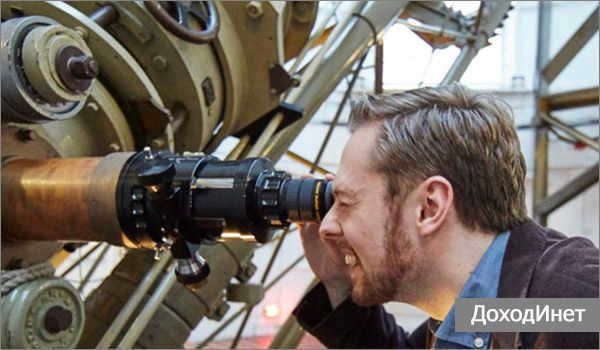
Astronomy is a theoretical field that requires extensive academic training and proficiency in complex software and mathematical tools.
Astronomy is one of the oldest sciences, with its earliest mentions found in ancient texts. In ancient times, astronomers used basic optical instruments to observe celestial bodies from Earth, document their findings, and attempt to uncover the laws of the cosmos. As time progressed, methods improved and more precise and advanced telescopes were developed. The field of astronomy expanded, and today, its most crucial areas of study include:
- the principles of celestial mechanics;
- astrophysics;
- cosmology;
- geodesy in astronomy;
- information technologies for space exploration;
- basics of geological exploration using aerospace technologies.
The field of study known as “Astronomy” would be ideal for individuals who have a preference for theoretical research and are interested in studying the vastness of space without physically venturing beyond our planet. It is important to keep in mind that this particular specialty is quite rare and highly sought after in advanced research facilities, universities, observatories, and planetariums.
Aerospace Engineer
An essential expert responsible for the creation and construction of spacecraft as well as the development of new models for various aerospace equipment, such as airplanes, helicopters, space stations, and satellites.
A higher level of expertise and skill is required for “space” aerospace engineers. Hence, the aircraft they design must be capable of withstanding increased speed loads, be highly reliable, and seamlessly integrate with modern communication and navigation systems. Consequently, only a specialist with top-notch technical education, continuous professional development, and up-to-date knowledge of innovative advancements can become a distinguished aerospace engineer.
In addition to their work in design bureaus, aerospace engineers can also perform expert examinations and work in organizations, including sales management roles.
Space Communication Systems Engineer
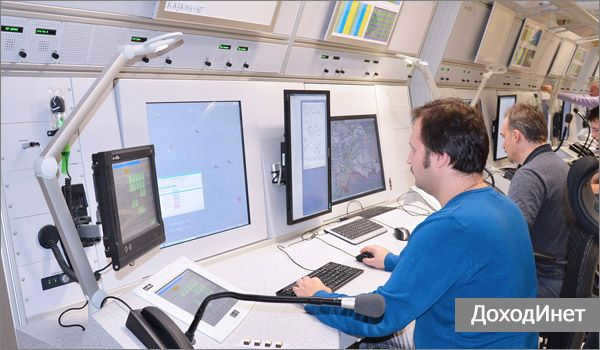
Engineers responsible for ensuring reliable communication between aircraft and astronauts and the Mission Control Center play a crucial role in space exploration. Recently, there has been a growing demand for professionals with expertise in satellite navigation and telecommunications, particularly in the propagation of radio and television signals through space satellites. These specialists, who specialize in satellite location, navigation, and control, are highly sought after in both government and business sectors.
Individuals pursuing a career as space communication engineers receive training in the faculties of radio electronics and telecommunication systems.
Space travel would be impossible without a range of essential equipment installed on spacecraft and orbital stations. The engineers responsible for developing and maintaining these onboard devices play a crucial role in ensuring their proper functioning. Initially, they design and manufacture high-precision equipment, followed by rigorous testing to identify any potential malfunctions. Throughout the flight, they provide guidance and technical support to the astronauts.
While not the most prominent space profession, the role of a flight equipment engineer is undeniably vital.
Aeronautical Technician
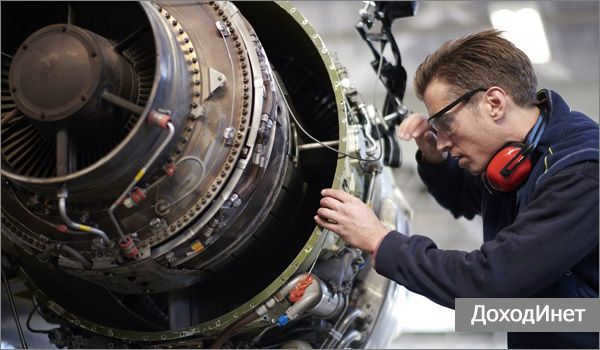
Space exploration is a fascinating field that encompasses various professions. One such profession is that of an aircraft mechanic, which involves working with different types of aircraft:
- conducting preflight preparation;
- performing repairs and replacements on individual components and mechanisms;
- carrying out routine maintenance on equipment.
To pursue a career as an aircraft mechanic, one can obtain a secondary technical education from a college or technical school. There are three main specializations within the field of aircraft mechanics:
- specializing in engine maintenance and control electronics;
- working with air conditioning systems and hydraulic units;
- handling the repair and debugging of other systems and mechanisms.
In order to advance to the next level in your career and become an engineer, it is necessary to obtain a higher technical education.
A medical professional specializing in space medicine
Physicians are constantly engaged in working with astronauts, both through direct interaction on Earth and through telecommunications while on the orbital station. There are four main stages of medical support in the field of “space” medicine:
- Selection of candidates for the astronaut team;
- Medical examination of individual equipment such as spacesuits and air purification systems;
- Monitoring of key medical indicators during spaceflight;
- Implementation of rehabilitation measures after the astronauts return to Earth.
Normally, doctors specializing in space medicine are employed at the Cosmonaut Training Center.
To pursue a career as a space medic, individuals must complete a medical degree program with a focus on “Medical Business” and then undergo supplementary training in “Aviation and Space Medicine”. This profession is open to both males and females.
Expert in Ballistics (Specialization: “Space and Aviation”)
Ballistics is the study of the movement characteristics of objects in both the air and space. Its primary focus is on ensuring the accuracy of flight orbit construction, analyzing dynamics, and guiding aircraft in airless space. A specialist in this field must possess a strong foundation in mathematics and physics, as well as have spatial thinking abilities and a comprehensive understanding of related disciplines such as aircraft design and navigation.
Furthermore, ballistics specialists are in high demand within the military industry, particularly in air defense and missile units.
Alongside the more traditional professions within the space industry, there are numerous innovative specialties that have seemingly emerged from the pages of fantasy books. These fields are rapidly evolving and are considered both prestigious and promising.
Astronaut Biologist
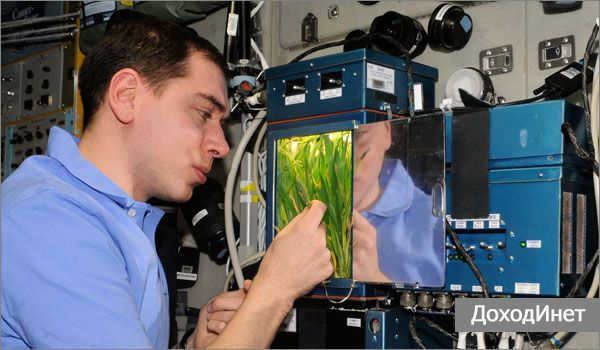
Space biologists explore the unique aspects of biological functions in space. They conduct studies on viruses, plants, and humans as biological organisms aboard orbital stations. Currently, space biologists are working towards translating theoretical experiments into practical applications and investigating the potential for animal and plant growth in zero gravity.
The field of cosmobiology is an exciting and promising scientific discipline of the future. Some universities in major cities offer programs to obtain qualifications in this field, or individuals can specialize in cosmobiology after completing higher education in biology.
Until recently, the space industry was predominantly controlled by state structures and closely linked to the defense sector, making it a closed and exclusive field. However, in recent years, there has been a shift towards making space more accessible to the general public, with the concept of space tourism gaining increasing attention.
Admittedly, space tourism is currently a luxury that only the affluent can afford. However, as technology advances and costs decrease, the opportunity to travel to different planets will become more widely available. This growth in space tourism will inevitably lead to a demand for professionals in the field, such as space tourism managers. In fact, this occupation is expected to be one of the most sought-after in the coming decades.
Software engineer specializing in artificial intelligence systems and robotics
The field of robotics and artificial intelligence is one of the most intellectually demanding areas of modern IT technology, especially when it comes to applications in the space industry. Software engineers in this field are responsible for designing and developing robots that can perform various tasks on space stations and provide assistance to astronauts during their missions. It is considered to be the pinnacle of modern IT expertise, accessible only to the most skilled software engineers.
Experts believe that this field holds the most promise for industry growth, attracting significant investments from large corporations and government organizations.
Expert in extraterrestrial geology
At first glance, the idea of mining minerals on faraway planets may seem like something straight out of a science fiction novel. However, there are actual research centers that are dedicated to the serious exploration and examination of resource deposits in outer space for use in Earth’s industries.
Cosmogeologists evaluate the potential for developing these deposits, calculate the expenses involved in mining and transporting the minerals back to Earth. While these projects may currently seem like something from the distant future, there are undoubtedly promising prospects in this field.
Final thoughts
The significance of space exploration is steadily growing as it plays a crucial role in the advancement of both conventional and knowledge-driven sectors. Professionals engaged in the space industry are held to the most rigorous standards, yet the opportunities that await them are equally remarkable. Individuals who are contemplating their future should consider pursuing careers associated with cutting-edge technology in the space sector.
👉 Subscribe to our Telegram channel SuccessOFF. Checklists on self-development, finance and healthy lifestyle. Become better with us!
An astronomer is an expert in the field of astronomy.
Astronomy in the present day necessitates a solid understanding of mathematics, thus professional astronomers typically possess specialized education. They are employed at observatories, research centers, or universities. Astronomers primarily engage in scientific research and the analysis of acquired data.
There are numerous specializations within the field of astronomy, including cosmologists, planetologists, astrophysicists, astrochemists, astrobiologists, and more.
Since ancient times, humans have been fascinated with the celestial heavens. Throughout history, various civilizations have made significant contributions to the field of astronomy, leaving behind a rich legacy of renowned scientists. Let us take a moment to recognize and appreciate the contributions of these individuals, whose groundbreaking discoveries continue to shape our understanding of the universe.
Hipparchus

Hipparchus, the renowned Greek astronomer and mathematician from Nicaea, is credited with creating the first star catalog in Europe during the period of approximately 190 to 120 BC. This catalog consisted of precise coordinate values for thousands of stars. Additionally, Hipparchus introduced a classification system for stars based on their brightness, known as star magnitudes. According to this system, the brightest stars were assigned the first magnitude, while the faintest ones were labeled as sixth magnitude. Remarkably, this classification system is still utilized in modern astronomy.
Nicolaus Copernicus: The Revolutionary Astronomer

Ptolemy was an ancient Greek astronomer and mathematician. He is best known for his geocentric model of the universe, which placed the Earth at the center and had the celestial bodies moving in complicated circular motions. However, his model was eventually replaced by the heliocentric model proposed by Nicolaus Copernicus.

Giordano Bruno
Giordano Bruno, an Italian philosopher, poet, and astronomer, was a prominent supporter of Nicolaus Copernicus and his heliocentric model. However, he faced significant opposition from the Roman Catholic Church, which upheld the geocentric theory as official doctrine. Tragically, in 1600, Bruno was condemned as a heretic and executed due to his scientific and philosophical beliefs.
Johannes Kepler
was a German mathematician, astronomer, and astrologer. He is best known for his laws of planetary motion, which revolutionized our understanding of the universe. Kepler was born in 1571 and studied at the University of Tubingen. He worked as an assistant to astronomer Tycho Brahe before developing his own theories about the movement of planets. Kepler’s three laws of planetary motion describe the elliptical orbits of planets around the sun and the equal area law, which states that a line connecting a planet to the sun sweeps out equal areas in equal times. These laws laid the foundation for Isaac Newton’s theory of gravity and helped shape our modern understanding of the universe. Kepler’s contributions to astronomy and mathematics are still celebrated today.

Johannes Kepler (1571-1630) was an astronomer, mathematician, and optician from Germany. He is renowned for his discovery of the laws governing the motion of planets in the solar system. Kepler’s groundbreaking work was built upon the extensive tables, calculations, and writings of his mentor, Tycho Brahe. Initially, Kepler served as Brahe’s subordinate, but upon his mentor’s passing, he assumed the role of a dedicated follower who diligently completed Brahe’s unfinished work.
Tycho Brahe
Tycho Brahe was a Danish astronomer and nobleman who made significant contributions to the field of astronomy during the 16th century. He was known for his accurate and detailed observations of the positions and movements of celestial bodies, particularly the planets. Brahe’s observations were made without the aid of a telescope, as he believed that the naked eye was more reliable. His observations formed the basis for Johannes Kepler’s laws of planetary motion, which were crucial in the development of modern astronomy. In addition to his astronomical work, Brahe was also interested in alchemy and made significant contributions to the field. He is often remembered as one of the most influential astronomers in history.

Tycho Brahe (1546-1601) was a Danish astronomer and astrologer during the Renaissance. He is renowned for revolutionizing the study of the cosmos in Europe by introducing a method of continuous observation. Rather than relying on isolated observations like his predecessors, Brahe implemented a systematic approach, meticulously recording highly accurate astronomical data.
Galileo Galilei – the Father of Modern Science

Galileo Galilei strongly supported the theory of heliocentrism, which caused him to clash with the Catholic Church. In 1633, he was declared a heretic (an unidentified artist’s painting depicts his trial). Unlike Giordano Bruno, Galileo was not executed but instead faced nine years of house arrest and constant surveillance for the remainder of his life.

Galileo ardently supported the theory of heliocentrism, which led to his clash with the Catholic Church. In 1633, he was branded a heretic (as portrayed in a painting by an anonymous artist showcasing the scientist’s trial). Unlike Giordano Bruno, Galileo was not put to death, but rather endured nine years of house arrest and constant supervision for the remainder of his life.
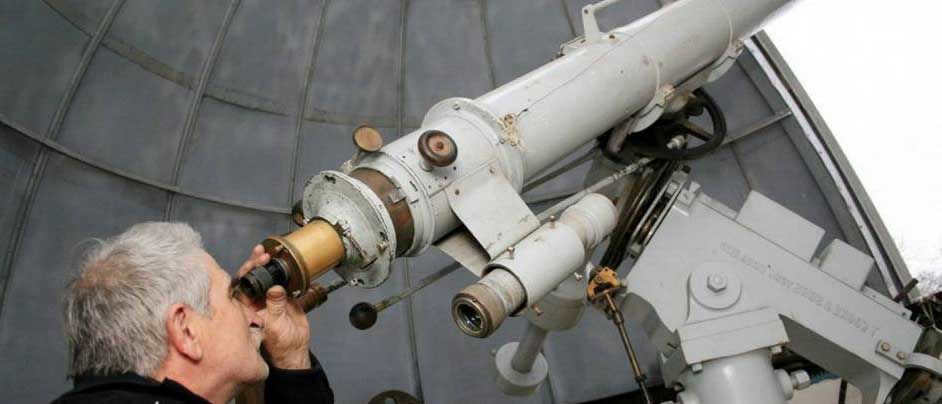
The stars have always captivated the minds of many individuals. It is safe to say that at least once in your lifetime, you have desired to reach out and touch those celestial bodies, to gaze at them more closely. If you possess a genuine interest in the interconnections of celestial bodies and their observation, then today we will provide you with insights about the astronomer profession, who they are, and what you need to know about it.
As you may have already deduced, the focus of today’s article revolves around the captivating profession of an astronomer. You will gain insight into the nature of this occupation, the tasks performed by astronomers, as well as the main advantages and disadvantages of pursuing this line of work.
To shed light on the question of who an astronomer is, we will refer to the definition provided by Wikipedia.
An astronomer is a professional who specializes in the examination and analysis of celestial bodies, investigating the correlation between the positioning of stars and galaxies.
About the occupation
This field has a long history, as humans have always been captivated by the vastness of outer space.
However, the universe is so expansive that it requires specialists to focus on specific areas, leading to a wide range of professional opportunities for astronomers.
There are two main categories of professionals within this field:
- Theoretical astronomers primarily focus on studying theoretical concepts, delving into the history of the universe and contributing new discoveries to existing data. Their work involves analyzing and synthesizing cosmic theories that require validation.
- Observational Astronomer. These experts develop innovative methods for studying the universe and stars, creating techniques that provide new perspectives on celestial bodies and facilitating observational work.
What do they do?
As we already know, astronomers explore outer space. But how exactly do they conduct their observations?
To address this question, let’s consider what responsibilities and tasks are associated with this profession:
- To possess knowledge about the processes occurring in space.
- To have a strong understanding of the exact sciences.
- To study the positions, movements, and other characteristics of celestial bodies.
- To track the motions of stars and other entities in outer space.
- Witness the emergence of fresh celestial entities, oversee the vanishing of ancient ones.
Hence, it can be contended that the scope of an astronomer’s work is exceedingly vast. It is through the efforts of these specialists that we gain an understanding of the cosmos in its entirety, and scientific knowledge about outer space and celestial bodies continues to expand on a daily basis.
Consequently, the occupation of an astronomer holds great significance. At times, they not only make groundbreaking discoveries in the realm of space, but also achieve real advancements in the realm of technology by inventing various instruments for the exploration of celestial entities.
To become a skilled astronomer, the first step is to pursue a specialization in either mechanical-mathematical or physical sciences at a university.
Afterwards, completing an internship in the chosen field and gaining practical experience is essential.
However, it is important to recognize that the learning process does not stop there, as continuous knowledge enhancement and skill development are crucial in order to remain a highly sought-after professional.
Advantages and disadvantages of being an astronomer
There are both positive and negative aspects to pursuing a career as an astronomer.
- The potential for making new discoveries that can contribute to a deeper understanding of the universe and celestial bodies.
- The opportunity to explore and be captivated by the mysteries of outer space.
- Possibility for professional advancement and growth.
- Chance to meet fascinating individuals in the field.
- Relatively high salary.
- Recognition and fame. Astronomers are often featured on television shows and are written about in newspapers and magazines.
- Opportunity to travel around the world.
Now let’s consider the drawbacks of this profession:
- The need for continuous learning and training.
- Stargazing can be a lengthy and tiring process.
- At times, the working day can become irregular, leaving no time for rest.
- There is a constant need to enhance one’s skills.
Let’s recap
In today’s article, we have addressed the question: What is an astronomer? Through this article, we have become familiar with the responsibilities of an astronomer and have learned about the advantages and disadvantages of this profession.
This article will be beneficial for children who aspire to pursue a career in the field of space exploration.

An astronomer is a scientist who investigates celestial objects such as stars, planets, and their moons, as well as comets and other celestial bodies.
Origin of the profession
For centuries, humans have been captivated by the study of the origins and characteristics of celestial entities.
The earliest documented records of astronomical observations can be traced back to the 8th century BC. During the same period, ancient China possessed the ability to accurately predict the dates of solar and lunar eclipses as early as 2000 BC.
The development of astronomy as a scientific discipline was driven by the human desire for knowledge that could assist them during long journeys on land or sea, as well as in agriculture.
Nicolaus Copernicus, Tycho Brahe, Johannes Kepler, Hans Lippersguy, and Galileo Galilei are prominent figures in the field of astronomy.
Characteristics of the profession
The occupation of an astronomer is relatively uncommon, and it consists of two main categories: theorists and observers. Theorists analyze and synthesize the data gathered from observations, while observers focus on devising efficient methods for conducting observations and discovering solid evidence that can support scientific theories.
There are various fields within the realm of astronomy, such as cosmology, stellar dynamics, astrophysics, radio astronomy, physics of galaxies, and astronomical instrumentation. The field of astronomy is closely intertwined with technological advancements. Engineers play a crucial role in creating highly precise observation equipment, which allows for the acquisition of the most accurate data.
Pursuing a career as an astronomer may not be suitable for everyone, particularly individuals with musculoskeletal, visual, or auditory impairments.
An astronomer is a scientist who does not spend all of their working day behind a telescope, contrary to popular belief about this profession. In fact, they often spend a significant amount of time processing the data obtained from observations and modeling various processes that occur in space. Astronomers also study the movements of celestial bodies, explore theories of astronomy and cosmology, and prepare reports for conferences.
Furthermore, astronomers play a role in developing new technologies for research, creating star maps, and providing timely alerts about potential unfavorable events happening in the universe.
Essential qualities
To be a successful astronomer, one must possess certain crucial qualities:
- Perseverance;
- Capability to organize data and draw conclusions;
- Observational skills;
- Accountability;
- Patience;
- Curiosity to explore the unknown;
- Hard work;
- Sharp eyesight and refined motor skills.
Skills and expertise
An astronomer is an expert who not only possesses a strong foundation in the exact sciences but also needs to have fluent English communication skills to engage in conferences and collaborate with international colleagues as needed. Additionally, proficiency in operating professional equipment for conducting research is crucial.
Moreover, proficiency in PC usage is essential as specialized software is utilized for data processing.
Opportunities and Career Paths
The field of astronomy offers countless opportunities for ambitious individuals to excel. Those who graduate from graduate school and successfully defend a PhD thesis, as well as publish scientific papers, can reach significant heights in this field. It is important to note that qualifications are directly linked to the scientific title obtained.
Astronomy specialists have a wide range of career options. They can find employment in space research institutes, observatories, and research centers. Some may even become guides in planetariums. For those interested, becoming a university teacher is also a possibility, contributing to the education and training of future astronomers.
Furthermore, the professional skills and knowledge acquired in astronomy make specialists highly sought after in related industries such as IT, astronomical geodesy, and engineering.
Derived from the Greek words astro and nomos, astronomy literally means “law of the stars”. Interestingly, this year, the ProfGuide career guidance center has created a precise test for career guidance. This test will provide you with insights into suitable professions, as well as offer conclusions about your personality type and intelligence.
An astronomer is a researcher who focuses on the study of celestial objects such as stars, planets, satellites, and comets.
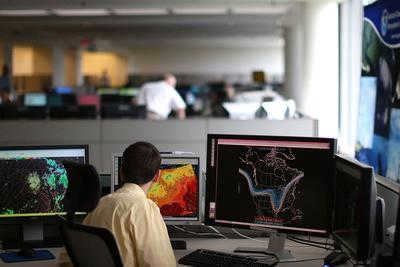
Distinctive Aspects of the Occupation
Astronomy is the study of the structure and evolution of celestial bodies, their systems, and the universe.
The profession of an astronomer is highly unique and uncommon.
A theoretical astronomer is engaged in theoretical astronomy and cosmology, which involves studying the origin and development of the universe and its components. They analyze and synthesize observational data.
Observational astronomers focus on developing observation techniques and gathering data, which serve as the foundation for scientific conclusions and hypotheses.
The specific tasks of an astronomer vary depending on their specialization. There are numerous fields, including cosmology, celestial mechanics and stellar dynamics, astrophysics, radio astronomy, galaxy physics, star physics, and astronomical instrumentation.
Astronomy is closely linked to other precise sciences, primarily mathematics, physics, and certain branches of mechanics. It utilizes the advancements of these sciences and, in turn, contributes to their advancement.
The trajectory of a Russian astronomer’s career follows the same path as in any other scientific field: university education, postgraduate studies, completion of a PhD thesis, defense, scientific research, and potential pursuit of a doctorate. With each new scientific achievement and title acquired, the level of qualification increases, which in turn affects the salary.
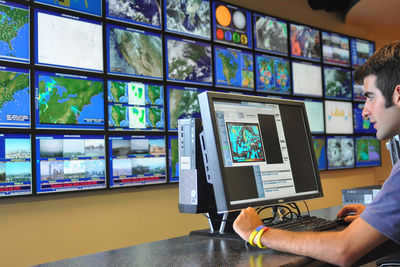
Aside from the field of astronomy itself, there are various specialized disciplines that are either directly or indirectly connected to this scientific field. These include Space and Information Technology, Astronomical Geodesy, Exploration of Natural Resources through Aerospace Methods, and Space and Information Technology.


